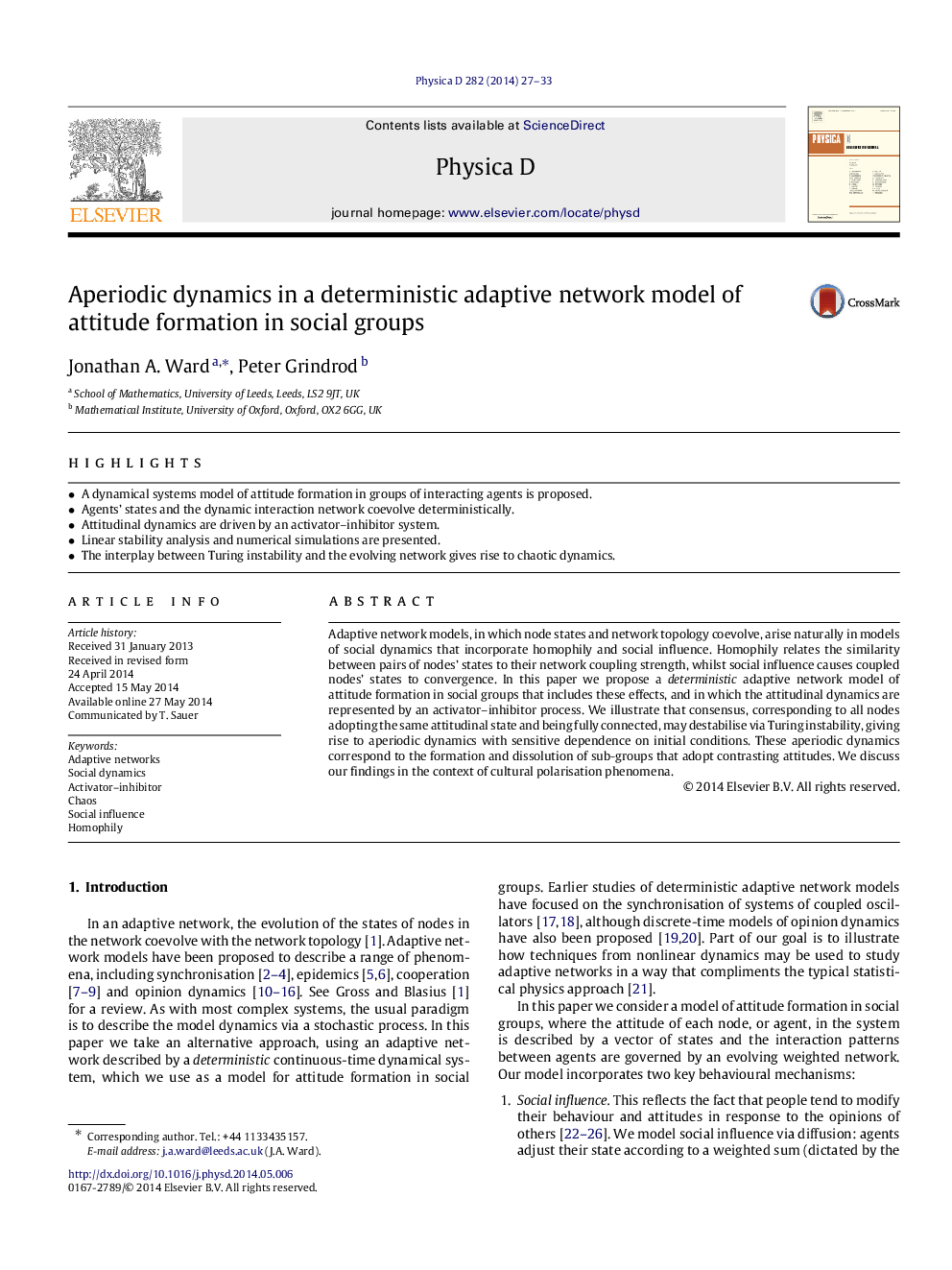| Article ID | Journal | Published Year | Pages | File Type |
|---|---|---|---|---|
| 1897254 | Physica D: Nonlinear Phenomena | 2014 | 7 Pages |
•A dynamical systems model of attitude formation in groups of interacting agents is proposed.•Agents’ states and the dynamic interaction network coevolve deterministically.•Attitudinal dynamics are driven by an activator–inhibitor system.•Linear stability analysis and numerical simulations are presented.•The interplay between Turing instability and the evolving network gives rise to chaotic dynamics.
Adaptive network models, in which node states and network topology coevolve, arise naturally in models of social dynamics that incorporate homophily and social influence. Homophily relates the similarity between pairs of nodes’ states to their network coupling strength, whilst social influence causes coupled nodes’ states to convergence. In this paper we propose a deterministic adaptive network model of attitude formation in social groups that includes these effects, and in which the attitudinal dynamics are represented by an activator–inhibitor process. We illustrate that consensus, corresponding to all nodes adopting the same attitudinal state and being fully connected, may destabilise via Turing instability, giving rise to aperiodic dynamics with sensitive dependence on initial conditions. These aperiodic dynamics correspond to the formation and dissolution of sub-groups that adopt contrasting attitudes. We discuss our findings in the context of cultural polarisation phenomena.
